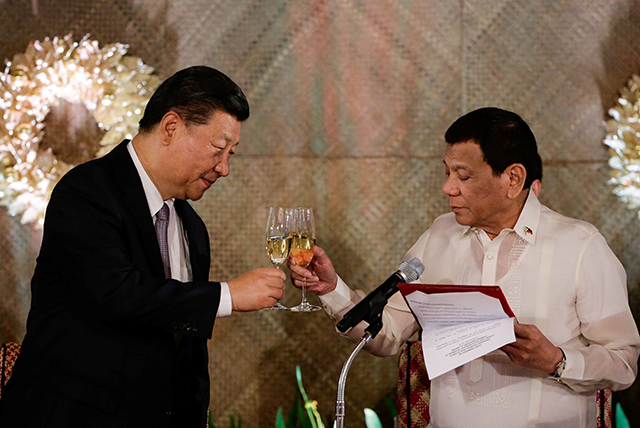Similar comments about protests and controversies against China were set off under the Department of Foreign Affairs‘ greeting commemorating the “friendship” between the Chinese and the Filipinos.
In a Facebook post on June 9, DFA uploaded an animated graphic to mark the Filipino-Chinese Friendship Day, which has been celebrated since 2002 “in remembrance of the shared history, tradition, and culture between the two countries.”
The annual commemoration was established by virtue of Proclamation No. 148 which was signed during the presidency of Gloria Macapagal-Arroyo.
Part of the proclamation read:
“It is thus fitting to designate one day in the year as Philippine-China Friendship Day to celebrate all that both countries enjoy and cherish together especially in the fields of socio-cultural, economic, and educational cooperation.”
The DFA expressed hope that this celebration would strengthen the ties between the two countries.
“The DFA looks forward to a continuing friendship and mutually beneficial relations between the peoples of the Philippines and China, which would translate to specific contributions to peace and harmony in the Asia Pacific Region,” DFA said.
As of writing, the Facebook post earned 6,000 shares and gained more than 16,000 reactions, wherein 12,000 and 3,800 of which represented anger and laughter reactions.
While the DFA’s message and graphics were mainly positive, the comments section was flooded with Chinese characters. In-between these were names of events, phrases and places related to controversies that happened in China’s history.
Translation via Google showed that the characters do not correspond to specific words or phrases.
Meanwhile, some of the notable words in these comments are:
- Umbrella movement—the first massive political movement in Hong Kong which emerged after a series of democracy protests on Sept. 28, 2014.
- The Tiananmen Square protests and massacre of 1989—the student-led demonstrations calling for reforms in democracy, free speech and free press in China. However, these led to a bloody crackdown by the Chinese government on June 4 and 5, 1989.
- The Great Proletarian Cultural Revolution—the upheaval launched by Mao Zedong in 1966 to 1976.
- The Xinjiang Uyghur Autonomous Region—an autonomous region in China where millions of Chinese ethnic minority groups, including Uyghur Muslims, live and tortured in internment camps.
Possible reasons for anti-Chinese sentiments
There’s a current widespread anti-Chinese sentiment among Filipinos which mostly stemmed from the national government’s refusal to reinforce the country’s sovereignty over the West Philippine Sea despite recent aggression in the disputed waters.
Instead, President Rodrigo Duterte courted his Chinese counterpart Xi Jinping for supposed friendlier bilateral relations since 2016.
Alleged crimes involving offshore online gaming firms or POGOs and their Chinese operators and Chinese employees were also exposed and investigated by the Senate last year.
These illegal activities include sex trafficking, money laundering and tax invasion, which reportedly amount to P51 billion.
Moreover, the novel coronavirus pandemic was also believed to have originated from a market in Wuhan, a province in China, and has since killed millions of people worldwide, including Filipinos.

